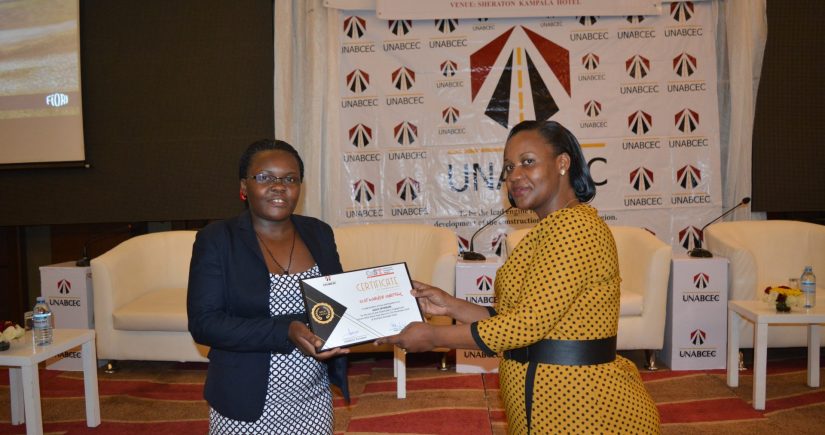We’re delighted to announce that CoST Uganda has secured funding from DFID’s Business Integrity Initiative (BII), which helps combat issues such as corruption in order to encourage trade and investment in new markets. The funding will run from January – December 2020 and will be used by CoST Uganda to support the development of a business-friendly environment in the country.
The BII funding comes after further evidence of the impact of corruption on business in Uganda. A survey from the Public Procurement and Disposal of Assets Authority (PPDA) found that 69.8% of service providers believe corruption influences public procurement, while figures from the Inspectorate of Government reveal that corruption in public contracting amounts to 9.4% of the total contract value. This is equivalent to 2.8 trillion Ugandan shillings or US $571.8 million.
This funding reflects CoST Uganda’s work to overcome these challenges and create a more transparent, business-friendly public infrastructure sector. It will now be used to improve disclosure practises through training on the Open Contracting for Infrastructure Data Standard (OC4IDS) and building trust between government and private sector entities. Here are some of the plans CoST Uganda has in place to achieve these aims.
High-level engagement
CoST Uganda will continue its high-level engagement with government officials, with plans currently in place to bring private sector and government representatives together to discuss key issues affecting business practises and procurement. Sharing experience and concerns will be key to building relationships between these entities and developing a culture of mutual trust. CoST Uganda will also engage the media, a key social accountability actor, in order to advocate for greater transparency in public procurement and share experiences on open contracting in infrastructure. These media engagements will span TV, radio and newspaper outlets.
Developing cross-government capacity
CoST Uganda will also utilise the BII funding in order to build capacity around the core CoST feature of disclosure within central and local-government procuring entities. The disclosure process ensures that information such as the purpose, scope, costs and implementation of infrastructure projects is open and accessible to the public: all of which means that opportunities for corruption and nepotism are diminished. These training sessions will focus on the OC4IDS and will also introduce the online version of CoST Uganda’s infrastructure monitoring tool, which has been developed to help civilian monitors as they track of levels of disclosure and quality on public infrastructure projects.
Stay tuned for more updates on CoST Uganda and the BII, as they work towards more transparent and business-friendly infrastructure governance in Uganda.
